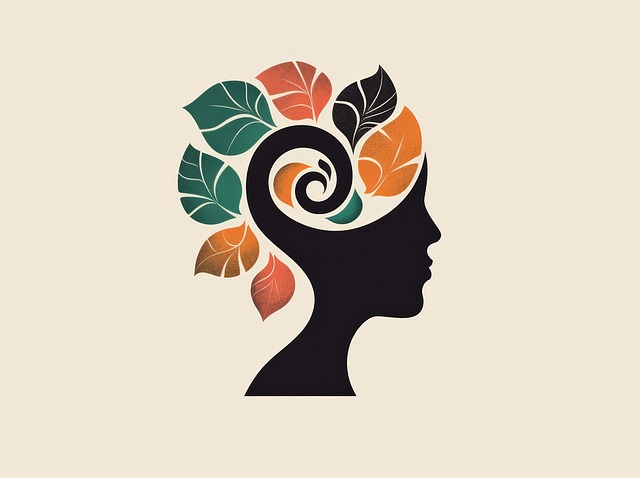Mood regulation skills are vital for children's emotional growth, impacting their social interactions and overall well-being. Through therapy, professionals teach kids to recognize and manage emotions using empathy building and mind over matter techniques. Emerging therapies like cognitive-behavioral therapy (CBT) and mindfulness practices have proven effective in equipping children with coping skills and enhancing resilience. Incorporating practical mood regulation strategies into daily routines, such as mindfulness exercises and physical activities, significantly enhances mental wellness for children and young individuals. Tailored Mental Wellness Coaching Programs offer effective tools for managing stress and anxiety, fostering emotional stability and resilient coping mechanisms.
Mood regulation is a vital skill, especially for children navigating an increasingly stressful world. This article explores effective strategies to help kids manage their emotions and reduce stress. We delve into the importance of understanding a child’s emotional landscape, offering insights into therapy approaches tailored for their age. Furthermore, practical daily strategies are provided to empower both parents and educators, fostering resilient and emotionally intelligent young minds. Discover how these tools can enhance children’s well-being and overall stress management.
- Understanding Mood Regulation for Children
- Therapy Approaches to Manage Stress in Kids
- Practical Strategies for Daily Implementation
Understanding Mood Regulation for Children

Understanding Mood Regulation for Children
Mood regulation is a vital skill for children to learn and develop as it plays a crucial role in their emotional well-being, social interactions, and overall quality of life. As kids navigate their daily experiences, they encounter various stimuli that can trigger different moods—from joy and excitement to sadness or frustration. Effective mood regulation strategies empower them to manage these feelings constructively, fostering resilience and adaptability. Through therapy for children, professionals guide young minds to recognize and comprehend their emotions, a fundamental step in learning appropriate coping mechanisms.
One essential aspect of teaching mood regulation is empathy building strategies. By encouraging children to acknowledge and understand their own feelings, as well as those of others, they develop a deeper sense of connection and compassion. Additionally, integrating mind over matter principles can be transformative. Teaching kids to reframe negative thoughts and replace them with positive affirmations or realistic perspectives helps to mitigate stress management issues and promotes better mood stability. Moreover, burnout prevention techniques tailored for children teach them to set boundaries, manage time effectively, and prioritize self-care, ensuring they maintain a healthy emotional balance even during challenging times.
Therapy Approaches to Manage Stress in Kids

In recent years, there’s been a growing recognition of the importance of early intervention in managing stress among children. Therapy approaches have emerged as effective tools to equip kids with coping skills development and enhance their resilience. These therapeutic methods cater to various needs, from cognitive-behavioral therapy (CBT) to mindfulness practices, all tailored to help young individuals navigate and regulate their emotional states.
A key aspect of successful therapy for children stress management involves healthcare provider cultural competency training. Understanding the unique backgrounds and experiences of each child allows professionals to deliver personalized care that respects and incorporates cultural nuances. This not only fosters trust but also strengthens the therapeutic alliance, ultimately making interventions more effective in building resilience and promoting healthy emotional development.
Practical Strategies for Daily Implementation

Incorporating mood regulation strategies into daily routines can significantly enhance mental wellness for children and young individuals. Therapy for Children often emphasizes practical techniques to manage stress, especially in today’s fast-paced world where anxiety relief is a growing concern. Simple yet effective methods include mindfulness exercises, such as deep breathing or guided meditation, which can be easily integrated into morning rituals or before bedtime. These practices foster self-awareness exercises, helping children identify and express their emotions healthily.
Additionally, engaging in physical activities like yoga or even short walks during breaks can serve as natural mood boosters. Many Mental Wellness Coaching Programs Development cater to this age group, offering tailored strategies for managing stress and anxiety. By combining these practical approaches, children can develop resilient coping mechanisms, ensuring better emotional regulation throughout their day-to-day lives.
Mood regulation is a vital skill for children to develop, as it can significantly impact their overall well-being and ability to manage stress. By understanding the unique challenges kids face and implementing practical strategies, parents and caregivers can empower them to navigate emotional landscapes effectively. Integrating therapy approaches, such as cognitive-behavioral techniques, into daily routines proves beneficial for stress management in children. These methods foster resilience, enabling young individuals to regulate moods healthily and thrive in various situations.














